Pre-Mongol Russia in the ballads of A.K. Tolstoy
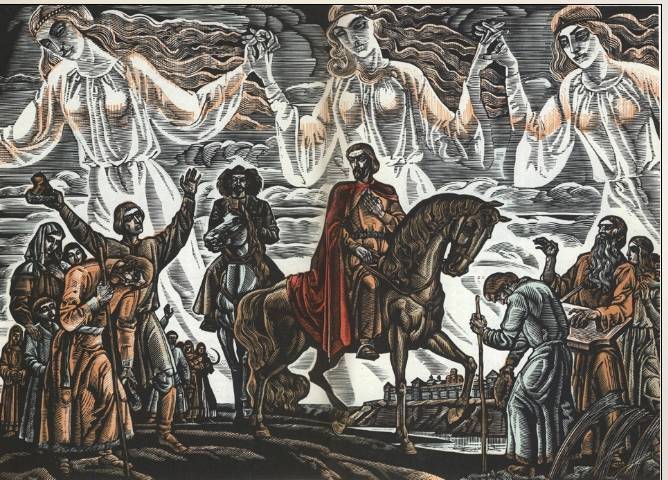
Today we will finish the story about historical ballads of A.K. Tolstoy. And let's start it with the romantic story of the marriage of Harald the Severe and Princess Elizabeth, daughter of Yaroslav the Wise.
"Song of Harald and Yaroslavna"
AK Tolstoy wrote about this ballad that he was “brought” to it by his work on the play “Tsar Boris”, namely, the image of the Danish prince, the groom of Princess Xenia. The ballad begins in 1036, when the brother of Yaroslav the Wise, already familiar to us Mstislav, the winner of the Battle of Listven, died. Yaroslav was then finally able to enter Kiev. With him was the brother of the Norwegian king Olav Saint Harald, who fled to Russia after the Battle of Stiklastadir (1030), in which the future patron saint of Norway died. Harald was in love with the daughter of Yaroslav the Wise Elizabeth, but at that time he was unenviable as a son-in-law for the ruler of a huge country. Therefore, at the head of the Varangian squad, he went to serve in Constantinople.
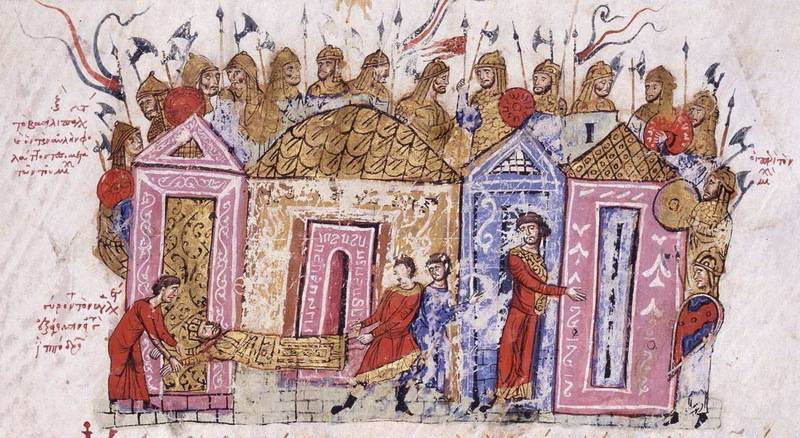
At the same time, Harald continued to maintain contact with Kiev: he sent the spoils and most of the salary to Yaroslav, who then honestly returned these funds to him.
It's time to turn to the ballad of A.K.Tolstoy:
He left Kiev sovereign,
He sighs heavily on the road:
"You are my star, Yaroslavna!"
And Russia leaves Harald behind,
He floats to open the grief
There, where the Arabs with the Normans fight
They lead on land and at sea. "
Harald was a talented skald and dedicated a cycle of poems to his love "The Hangings of Joy". In the XNUMXth century, some of them were translated into French. And then several Russian poets translated them from French into Russian.
Here is one example of such a translation made by I. Bogdanovich:
I traveled around Sicily in small days,
Fearlessly everywhere I went where I went;
I beat and won, who met against me ...
In a miserable swim, at the most miserable hour,
When there were sixteen of us on the ship,
When thunder smashed us, the sea was pouring into the ship,
We poured out the water, forgetting both sadness and grief ...
I am skilled in everything, I can greed with oarsmen,
On skis, I earned my honor;
I can ride a horse and rule
I throw the spear at the target, I am not shy in battles ...
I know military craft on earth;
But the water of love and love of the paddle,
For glory, I fly in wet ways;
Norwegian brave men are afraid of me.
Am I not a young man, am I not dashing?
And the Russian girl tells me to bust home. "
A. K. Tolstoy did not translate this most famous poem by Harald, but used its plot in his ballad.
Harald's glory has no equal -
But in thought, the calm waters of the Dnieper,
But Princess Yaroslavna is in her mind.
No, apparently, he can't forget about her,
Do not torture the happiness of another - and he turned the ships abruptly
And he drives them to the north again. "
According to the sagas, in the service of the empire, Harald fought 18 successful battles in Bulgaria, Asia Minor and Sicily. The Byzantine source "Instructions to the Emperor" (1070-1080) says:
During Harald's service in Byzantium, three emperors were replaced.
The Wering Harald seem to have taken an active part in the dramatic events that cost the life of the last of them. In 1041, after the death of Emperor Michael IV, his nephew, Michael V Kalafat ("Caulker", from a family whose men had previously caulked ships), ascended the throne. The widow of the former emperor Zoya, who had previously adopted a nephew, was sent by him to a monastery. However, soon (in 1042) an uprising began in the capital. Zoe was released, Mikhail Kalafat was first blinded and then executed. The imperial palaces were then plundered.
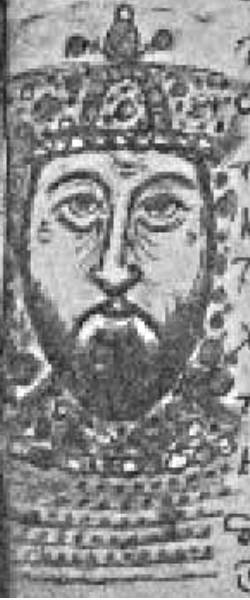
In The Saga of Harald the Severe, it is stated that Harald personally gouged out the eyes of the deposed Emperor Michael. The author of the saga, the famous Snorri Sturlson, understood that this message could cause distrust among readers, but was forced to include it in the text. The point is that it was confirmed by skald vises. And the Skalds could not lie when talking about a real person: a lie is an encroachment on the well-being of the whole family, it is a criminal offense. The punishment for lying verses was often exile, but sometimes death. And skald vises are built in such a way that even one letter cannot be replaced in a line. Talking about those events, Sturlson seems to be making excuses to the readers:
And it seems that the skalds did not let Sturlson down. Byzantine historian Michael Psellus writes:
Theodora is Zoya's younger sister, her rival, co-ruler since 1042, the autocratic empress in 1055–1056.
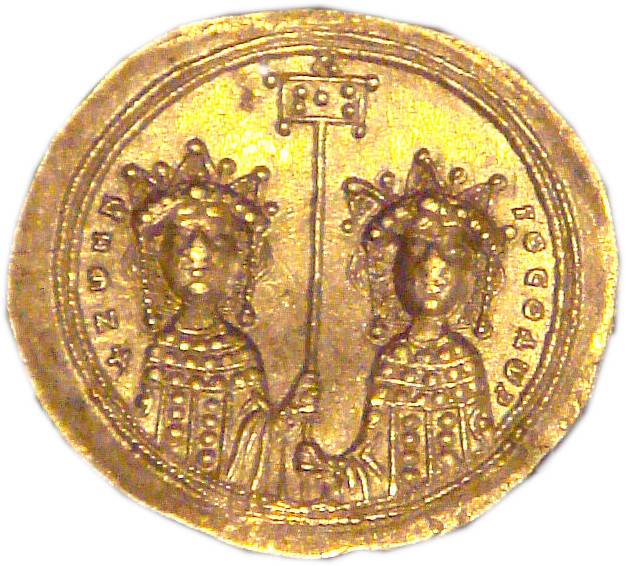
The deposed emperor and his uncle, who took refuge in the Studia monastery, were ordered to burn out their eyes. And Harald and his warriors fit the definition of "daring and courageous people."
But, as we remember, in the same 1042 Harald suddenly left Byzantium without permission (in fact, he fled from it). There are different versions of these events. One of them claims that Harald fled after the 60-year-old empress Zoya, who was in love with him, invited him to share the throne with her.
The Saga of Harald the Severe says:
The scriptwriters of the Soviet film "Vasily Buslaev" seem to have heard something about this story. In it, the Tsargrad empress Irina also offers the main character her hand and the throne of the empire - in exchange for the murder of her husband.
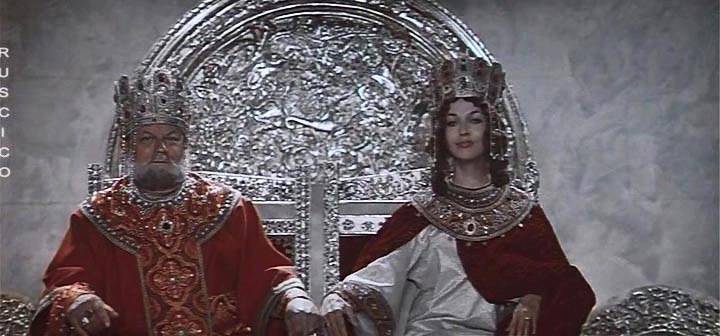
But back to Harald.
The chronicler William of Malmösbury, who lived in the first half of the XNUMXth century, claims that this leader of the Verings dishonored a noble woman and was thrown to be devoured by a lion, but strangled him with his bare hands.
Finally, supporters of the third version believe that Harald fled after he was accused of appropriating the emperor's property during one of the campaigns. Snorri Sturlson apparently knew about these versions defaming Harald.
Let's continue his quote about Zoya's desire to marry a gallant Norwegian and Harald's refusal:
After that, Zoya married the notorious Konstantin Monomakh (it was his illegitimate daughter who later came to Kiev, married Vsevolod Yaroslavich and became the mother of the last Grand Duke of pre-Mongol Rus). And our hero returned to the court of Yaroslav as a warrior known throughout Europe under the name of Harald Hardrada (Severe).
Here he again wooed Elizabeth, which is described in A. Tolstoy's ballad:
Looted the seaside of Constantinople,
Rook pearls on the edge loaded,
A tissue and measure is not necessary!
To ancient Athens, like a raven, rumor
Swept before my boats,
On the marble paw of the Pyrean lion
I cut my name with the sword! "
Let's pause and talk about the famous lion from Piraeus.
Now this antique sculpture is in Venice. It was brought here by Admiral Francesco Morosini - as a trophy of the Venetian-Ottoman war of 1687.
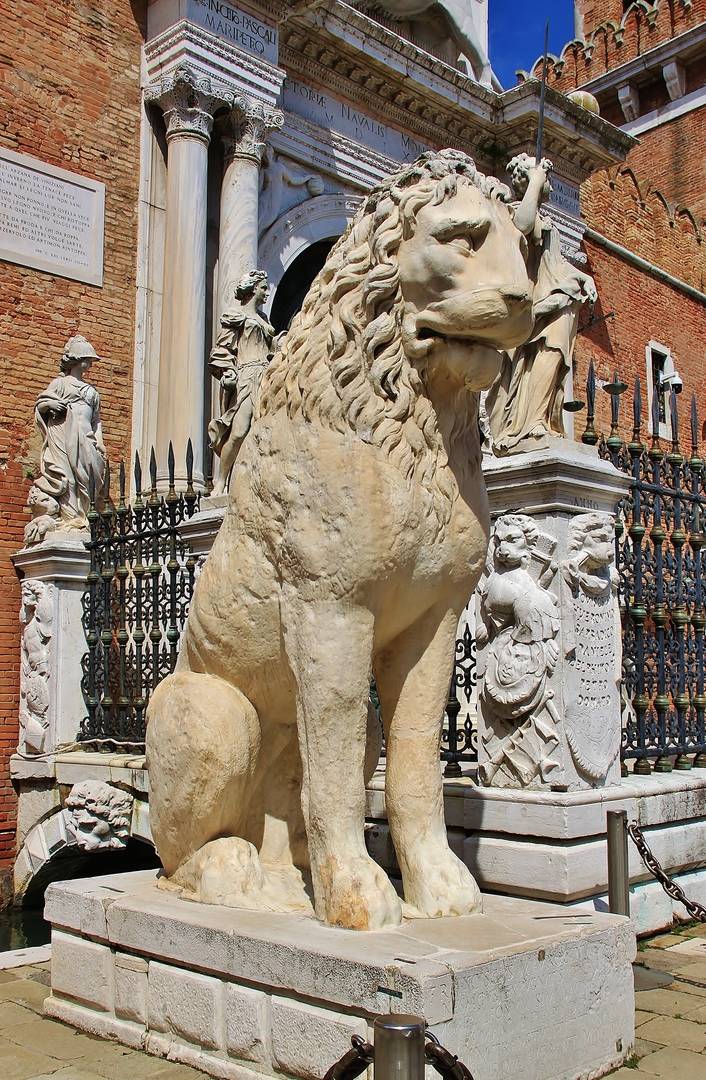
E. A. Melnikova also mentions the Piraeus lion in her monograph "Scandinavian Runic Inscriptions":
The picture below shows that this mysterious inscription is not on the paw, but on the ridge of the lion:
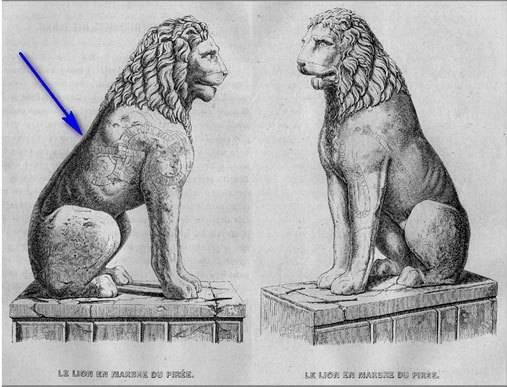
Many tried to decipher these runes, but at the moment it is safe to say that only a few words can be read. Trikir, drængiar - "young people", "fighters". Bair is the pronoun "they". The damaged fn þisi runes could mean "this port". Everything else defies interpretation. Various versions of "translations" that are sometimes found in the literature are of a fantasy nature.
Let's go back to the ballad of A.K. Tolstoy:
Nowhere is my glory equal!
Would you now be called my
Are you my star, Yaroslavna? "
This time the matchmaking of the hero was successful, and Harald and his wife went home.
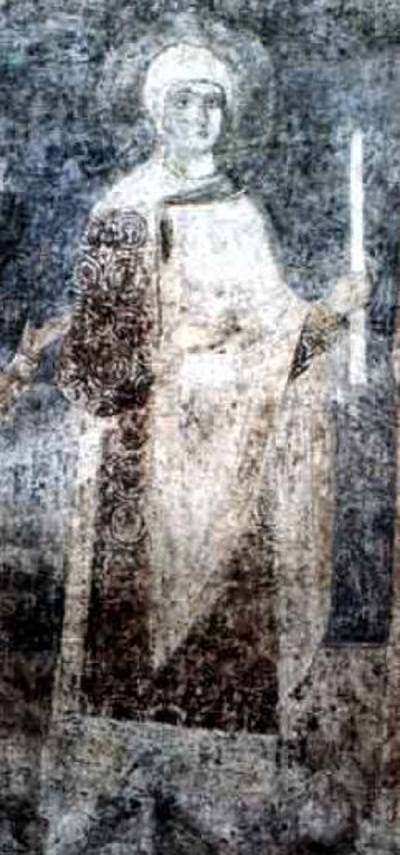
In the spring, with the splash of the people,
At that time, as the scarlet rose hips bloom,
Harald returned from the campaign.
And he himself is by the sea, with a cheerful face,
In chlamys and in a light crown,
Norwegian king's chosen one of all,
Sits on an exalted throne. "
This passage does not require special comments, but it should be noted that at first Harald was co-ruler of his brother Magnus. And, looking ahead, I will inform you that in 1067, a year after the death of Harald in England, Elizabeth remarried - this is how real life differs from our beloved near-historical ballads and novels.
"Three massacres"
The plot of this ballad is as follows: two women in Kiev have terrible dreams about the upcoming battles in which people close to them will die.
The first to tell about her dream is the wife of the Kiev prince Izyaslav, the son of Yaroslav the Wise:
where the Varangian waves splash,
Ships are preparing to sail for the Saxons,
They are full of Varangian grits.
Then our matchmaker Harald is going to sail -
God save him from misfortune!
I saw: ravens are a black thread
She sat down with a cry on the tackle.
And the woman seems to be sitting on a stone,
He counts the courts and laughs:
Swim, swim! - she says, -
None will return home!
Harald-Varangian in Britain awaits
Saxon Harald, his namesake;
He will bring you red honey
And he will put you to sleep hard! "
Time of action - 1066: about 10 thousand Normans under the leadership of the "last Viking" familiar to us, Harald the Severe, sail to England, where they will meet with the Anglo-Saxon army of King Harold II Godwinson.
The ballad follows the story of the Battle of Stamford Bridge (near York), which took place on September 25, 1066:
Blackened like a cloud of chain mail
The battle ax whistled in the Saxons,
Like autumn blizzard in the leaves;
He threw bodies with bodies in bodies,
Blood flowed from the field to the sea -
Until the arrow squealed, the arrow rushed
And it didn’t get stuck in his throat. ”
You probably guessed that this passage is about the death of the Norwegian Harald.
The second dream is seen by the Guide - the daughter of Harold II Godwinson, who won the battle at Stamford Bridge, the wife of Vladimir Monomakh (let's just say that the Guide arrived in Russia after the events about which the ballad tells):
Where the Norman waves splash
Ships are preparing to sail for the Saxons,
The Normandies are full of knights.
Then their prince, Wilhelm, is going to sail -
I seem to heed his words, -
He wants to destroy my father,
Own his land! "
And the wicked woman invigorates his army,
And he says: “I flock of ravens
I call the Saxons to peck in the morning,
And I will wave to the wind! "
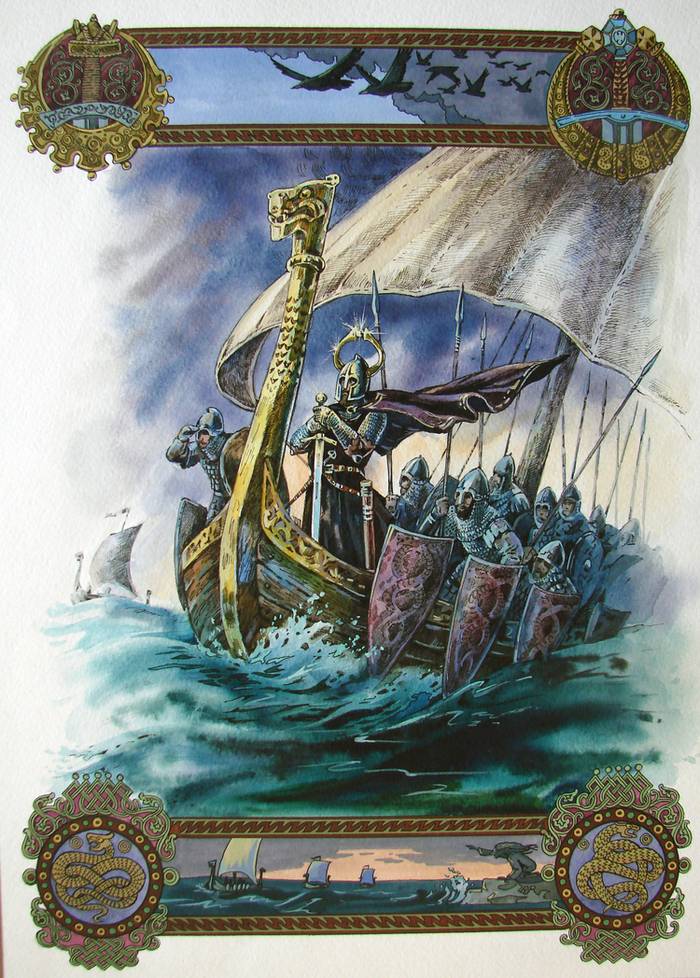
In September of the same 1066, the Norman Duke Wilhelm, the great-grandson of Norman Hrolf the Pedestrian, who conquered this province of France, gathered an army of adventurers from Normandy, France, the Netherlands and landed with him in England.
He offered Harold a peace treaty in exchange for recognition as king of England. Despite heavy losses in the battle with the Norwegians, Harold refused the shameful offer, and the fate of the English crown was decided in the bloody battle at Hastings.
Now they are quiet and quiet
And their corpse Harald can not be found
Among the corpses there are wandering mnikhs. "
The Battle of Hastings lasted 9 hours. King Harold, blinded by an arrow, received so many wounds during the last battle that only his wife, Edith Swan Neck, could identify his body - by some signs only known to her.
You can read a detailed story about the battles at Stamford Bridge and at Hastings in the article 1066 year. Battle for england.
The herald of the third battle is Izyaslav's warrior:
I stood on guard,
I counted many thousands of them:
Then the Polovtsians are approaching, prince! "
This passage is interesting in that it is about the famous battle of Nezhatina Niva, which took place 12 years after the events in England (in 1078).
A.K. Tolstoy deliberately transferred its action to 1066, explaining this in a letter to Stasyulevich:
The Polovtsi, of course, participated in this battle, but only as mercenaries. Its main characters were the famous Oleg Gorislavich and his cousin Boris Vyacheslavich.
The background of those events is as follows: the second son of Yaroslav the Wise, Svyatoslav, captured Kiev, expelling his older brother Izyaslav from there. After the death of Svyatoslav, his children were deprived of their reign by their uncles in all cities, including those that belonged to them by right.
The eldest of them, Gleb, who ruled in Novgorod, was apparently especially feared by his relatives, because he was treacherously killed on his way to Smolensk. Vladimir Monomakh's friend and godfather of his eldest son, Oleg Svyatoslavich, fled after these events to the Polovtsy. His cousin Boris Vyacheslavich also sided with the Svyatoslavichi. Before the battle of Nezhatina Niva near the Ostr river ("Kayala" "Words about Igor's regiment") - not far from the city of Nizhyn - Oleg wanted to make peace with his opponents, but Boris said that in this case he and his squad would enter the battle alone.
The results of this battle:
A.K. Tolstoy:
He rode out there, formidable and spiteful,
Raising his two-handed sword high,
Saint George is like;
But by nightfall, holding on to the mane with my hands,
A horse carried away in battle,
Already the wounded prince was racing across the field,
With the head thrown back. "
"A word about Igor's regiment":
So, the battle ended with the complete defeat of the brothers and the death of two princes of the opposing sides. Boris died in battle, and the Kiev prince Izyaslav, who did not take direct part in the battle, was killed by an unknown rider with a spear in the back. This was the beginning of the famous "formidable Oleg's campaigns", and Vladimir Monomakh still had to "lay his ears in Chernigov every morning" when Oleg would enter "the golden stirrup in the city of Tmutorokan" ("The Lay of Igor's Regiment").
A.K. Tolstoy:
Singing long: Hallelujah!
And the princes' brothers reproach each other,
And greedy crows look from the roofs,
Feeling close to strife. "
"A word about Igor's regiment":
Ballad "Prince Rostislav"
Lies at the bottom of the river,
Lies in combat chain mail
With a broken sword. "
We are talking about the fate of the Pereyaslavl prince Rostislav Vsevolodovich, brother of Vladimir Monomakh.
In 1093, the son of Yaroslav the Wise, Vsevolod, who was pursuing a tough anti-Polovtsian policy, died. His nephew Svyatopolk became the Grand Duke of Kiev according to ladder law. The Polovtsi, who were going on a campaign against Vsevolod, having learned about his death, decided to make peace with the new prince. But Svyatopolk considered the ambassadors' behavior insolent and ordered to put them in a cellar. Polovtsi responded by besieging the city of Torchesk.
In the spring of 1093, the combined troops of Svyatopolk of Kiev, Vladimir Monomakh (at that time the Prince of Chernigov) and Rostislav Pereyaslavsky moved to the mouth of the Stugna and crossed it. A battle took place here, which ended in the defeat of the Russian squads. During the retreat, while crossing the flooded Stugna, Rostislav drowned. This battle is mentioned in the "Lay of Igor's Campaign":
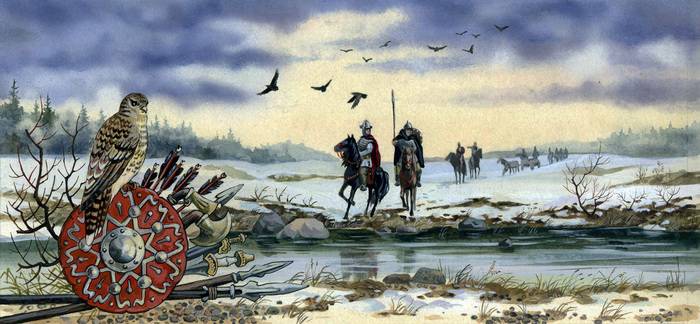
The main theme of this ballad is the sadness of the deceased young prince. And again there is a roll call with "The Lay of Igor's Campaign."
A.K. Tolstoy:
The princess is waiting at home ...
The rook sped him away
Will not bring back! "
"A word about Igor's regiment":
according to the young prince Rostislav.
The flowers are sad with pity
and the tree bowed to the ground with longing. "
Thus, the historical ballads of A. K. Tolstoy, written in a good style, can serve as excellent illustrations for some pages of Russian history.
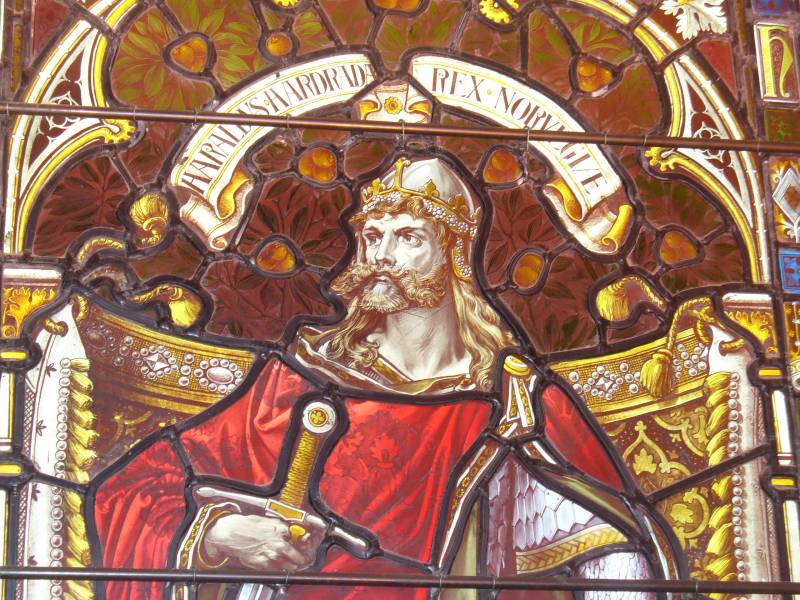
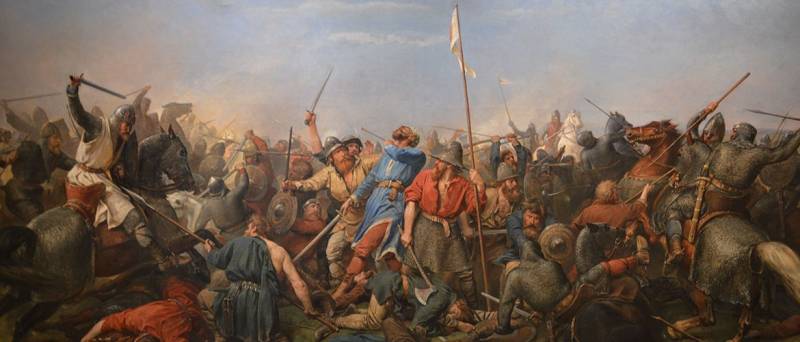
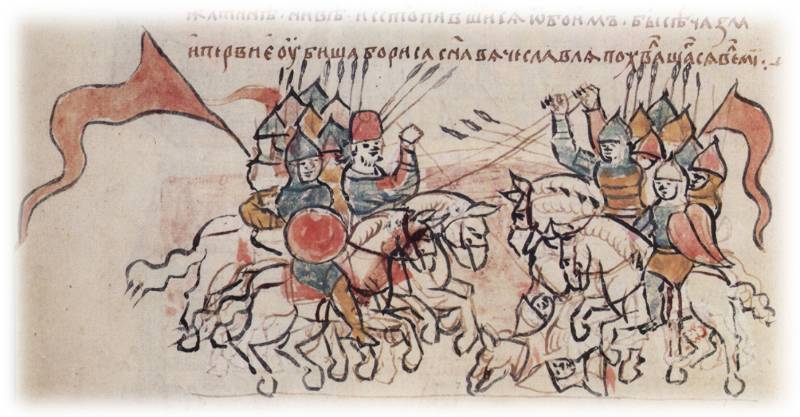
Information